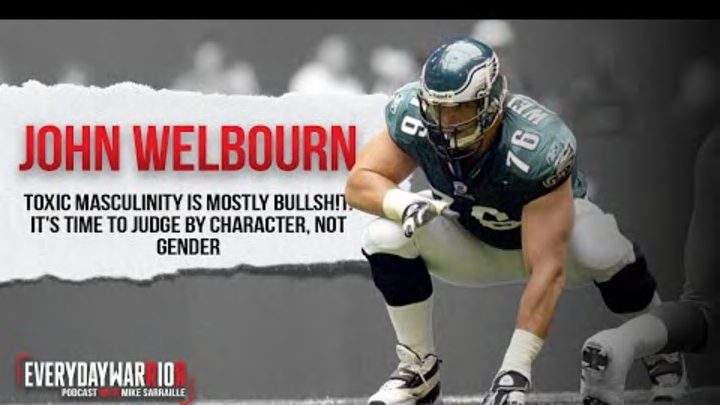Toxic Masculinity is Mostly Bullsh!t. It's Time to Judge by Character, Not Gender

In today's world, the term "toxic masculinity" gets thrown around with alarming frequency. But let's take a moment to unpack what this phrase means and why it's mostly, well, bullish!t. Labeling all men or masculinity as "toxic" paints a broad and damaging stroke over a complex issue. Instead of assessing individuals based on their integrity, character, and actions, we often categorize an entire gender under one harmful banner. This, of course, ignores the significant contributions of men throughout history—from those who build our cities to those who protect our freedoms.
The Myth of Toxic Masculinity
Toxic masculinity is often used to describe men who display dominance, aggression, or lack of emotional vulnerability. But let's be clear: there is a fundamental difference between true masculinity and behaviors that are destructive or harmful. Masculinity itself is not the problem; it's the corruption of it. As John Welbourn discusses in his podcast, many men who get labeled as "toxic" have subverted true masculine values. These aren't men exhibiting strength and honor—they're often individuals who've never faced real challenges yet posture themselves as warriors or alphas. These people aren’t veterans of anything except their own imagined culture wars.
Jordan Peterson’s Perspective on Masculinity
Psychologist Jordan Peterson, who has delved extensively into the gender debate, points out that men play essential roles in society, many of which are often underappreciated. Men are overwhelmingly the ones who do the most dangerous jobs—like construction, mining, and combat. These are not roles that come with the luxury of fragility. It takes grit, responsibility, and courage to build cities, lay infrastructure, and defend nations. That's not toxic; that's essential.
Peterson also emphasizes that men often put themselves in harm's way for the protection and well-being of others. This by no means discounts all the amazing sisters-in-arms (women) I've served with who put themselves in harm's way in the military and first-responder communities - their significance is massive. The fact that we live in relatively safe societies with infrastructure, law enforcement, and military protection isn't a coincidence. These are the contributions of real men who, far from being "toxic," have sacrificed their time, health, and, in many cases, their lives for the common good.
Broad Brush Strokes: The Real Danger
What's genuinely toxic is the broad-brush approach of labeling entire groups of people based on the actions of a few. Just as we wouldn't brand all women under the umbrella of "toxic femininity" due to the actions of a few individuals, it's wrong to generalize all men as toxic based on the misdeeds of some.
Yes, some men (and women) lack character and integrity. Still, the solution is not to attack masculinity or femininity as concepts. Instead, we should assess individuals—regardless of their gender—based on their values, integrity, and the quality of their actions. Society benefits from strong, responsible men and women, but vilifying either sex in sweeping terms doesn’t serve anyone.
The Role of Real Masculinity
John Welbourn nails it in his podcast when he discusses what masculinity means: mentorship, fatherhood, and responsibility. He points out that the two defining moments in a man's life are when he becomes a father and loses his own father. These experiences shape men profoundly, forcing them to step into guidance, care, and protection roles.
Being a man is not about aggressive posturing or playing a role. It’s about showing up, following through on your word, and being a positive force in the lives of those around you. Whether it's raising children, standing by your family, or helping to build and protect society, true masculinity is rooted in action and responsibility, not in the shallow displays of strength often associated with the term "toxic masculinity."
Judge by Character, Not Gender
The narrative around toxic masculinity is reductive and harmful. Instead of gender-blaming, we should focus on assessing people for their integrity, character, and contribution to society. There are toxic individuals in the world, but they come from all genders, races, and backgrounds. Let's stop painting in broad strokes and start celebrating the true strengths of individuals, both men and women, who act with honor and purpose.
